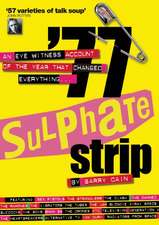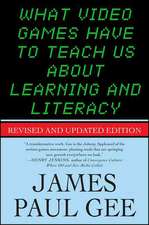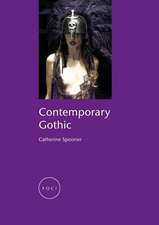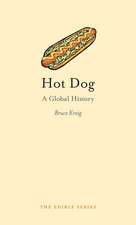Symbolic Action Theory and Cultural Psychology: Recent Research in Psychology
Autor Ernest E. Boeschen Limba Engleză Paperback – 26 iun 1991
Din seria Recent Research in Psychology
- 15%
 Preț: 632.37 lei
Preț: 632.37 lei -
 Preț: 379.86 lei
Preț: 379.86 lei - 15%
 Preț: 637.13 lei
Preț: 637.13 lei -
 Preț: 377.73 lei
Preț: 377.73 lei - 15%
 Preț: 631.40 lei
Preț: 631.40 lei -
 Preț: 382.36 lei
Preț: 382.36 lei - 15%
 Preț: 635.65 lei
Preț: 635.65 lei - 15%
 Preț: 642.36 lei
Preț: 642.36 lei - 15%
 Preț: 634.18 lei
Preț: 634.18 lei -
 Preț: 392.60 lei
Preț: 392.60 lei - 15%
 Preț: 637.59 lei
Preț: 637.59 lei - 15%
 Preț: 635.65 lei
Preț: 635.65 lei - 15%
 Preț: 634.49 lei
Preț: 634.49 lei - 15%
 Preț: 645.47 lei
Preț: 645.47 lei - 20%
 Preț: 440.21 lei
Preț: 440.21 lei - 15%
 Preț: 653.33 lei
Preț: 653.33 lei - 5%
 Preț: 712.60 lei
Preț: 712.60 lei - 15%
 Preț: 634.68 lei
Preț: 634.68 lei - 18%
 Preț: 950.96 lei
Preț: 950.96 lei - 15%
 Preț: 639.59 lei
Preț: 639.59 lei - 15%
 Preț: 634.00 lei
Preț: 634.00 lei - 15%
 Preț: 636.80 lei
Preț: 636.80 lei - 18%
 Preț: 724.00 lei
Preț: 724.00 lei - 15%
 Preț: 642.18 lei
Preț: 642.18 lei - 15%
 Preț: 635.15 lei
Preț: 635.15 lei - 15%
 Preț: 639.08 lei
Preț: 639.08 lei - 15%
 Preț: 638.76 lei
Preț: 638.76 lei - 15%
 Preț: 640.55 lei
Preț: 640.55 lei - 15%
 Preț: 637.28 lei
Preț: 637.28 lei - 15%
 Preț: 630.57 lei
Preț: 630.57 lei - 15%
 Preț: 636.80 lei
Preț: 636.80 lei - 15%
 Preț: 638.57 lei
Preț: 638.57 lei - 15%
 Preț: 633.02 lei
Preț: 633.02 lei - 15%
 Preț: 647.08 lei
Preț: 647.08 lei - 15%
 Preț: 638.43 lei
Preț: 638.43 lei - 15%
 Preț: 649.71 lei
Preț: 649.71 lei - 15%
 Preț: 637.93 lei
Preț: 637.93 lei - 15%
 Preț: 634.18 lei
Preț: 634.18 lei - 15%
 Preț: 632.37 lei
Preț: 632.37 lei -
 Preț: 376.80 lei
Preț: 376.80 lei - 15%
 Preț: 644.18 lei
Preț: 644.18 lei - 15%
 Preț: 640.55 lei
Preț: 640.55 lei - 15%
 Preț: 637.78 lei
Preț: 637.78 lei -
 Preț: 377.57 lei
Preț: 377.57 lei - 15%
 Preț: 635.15 lei
Preț: 635.15 lei - 18%
 Preț: 946.87 lei
Preț: 946.87 lei - 15%
 Preț: 647.27 lei
Preț: 647.27 lei - 15%
 Preț: 633.53 lei
Preț: 633.53 lei
Preț: 645.47 lei
Preț vechi: 759.37 lei
-15% Nou
Puncte Express: 968
Preț estimativ în valută:
123.51€ • 128.95$ • 102.22£
123.51€ • 128.95$ • 102.22£
Carte tipărită la comandă
Livrare economică 04-18 aprilie
Preluare comenzi: 021 569.72.76
Specificații
ISBN-13: 9783540539926
ISBN-10: 3540539921
Pagini: 400
Ilustrații: IX, 387 p.
Dimensiuni: 155 x 235 x 21 mm
Greutate: 0.56 kg
Ediția:Softcover reprint of the original 1st ed. 1991
Editura: Springer Berlin, Heidelberg
Colecția Springer
Seria Recent Research in Psychology
Locul publicării:Berlin, Heidelberg, Germany
ISBN-10: 3540539921
Pagini: 400
Ilustrații: IX, 387 p.
Dimensiuni: 155 x 235 x 21 mm
Greutate: 0.56 kg
Ediția:Softcover reprint of the original 1st ed. 1991
Editura: Springer Berlin, Heidelberg
Colecția Springer
Seria Recent Research in Psychology
Locul publicării:Berlin, Heidelberg, Germany
Public țintă
ResearchCuprins
Introductory Commentary.- 1 Introduction.- 2 Experiencing Culture.- 2.1 First Initiation.- 2.2 Denotative and Connotative Meaning.- 2.3 Goals and Barriers.- 3 Culture: An Action-Theoretical Definition.- 3.1 Culture is a Field of Action.- 3.2 The Contents of the Cultural Field of Action.- 3.3 Culture Defines Possibilities and Conditions for Action.- 3.4 Culture is both a Structure and a Process.- 4 Action-Theoretical Concepts.- 4.1 Some Introductory Remarks.- 4.2 The Concept of Action.- 4.3 The Phases of Action.- 4.4 Action Relationships.- 4.5 Action Field and Action Spheres.- 4.6 Connotations and Symbolism of Action.- 4.7 “Overt” and “Covert” Action.- 4.8 Is-versus Should-Values and Ranges of Tolerance.- 4.9 The Action Potential.- 4.10 Resistance, Limitations, and Barriers.- 4.11 Dominant Goals of Action.- 4.12 The Consciousness of Actions.- 4.13 Conflict.- 4.14 Stabilization and Innovation.- 5 Space and Time.- 5.1 Space.- 5.2 Time.- 6 Objects.- 6.1 General Aspects of Man-Object Relationships.- 6.2 Objectivation and Subjectivation.- 6.3 The Symbolism of Objects.- 6.4 Instrumentality and Consumptions.- 6.5 The Aesthetic Object.- 6.6 The Magical Object.- 6.7 Order and Disorder: The Constellation of Objects.- 7 Myths and Fantasms.- 7.1 Freud and Lévi-Strauss: Variations in Interpretation.- 7.2 Myths, Mythemes and Myth-Stories.- 7.3 The Role of Fantasms.- 7.4 The Impact of Fantasms on Myths: Narcissus.- 7.5 Examples of Myth-Fantasm-Interactions.- 8 The I and the Others: Identity and Empathy.- 8.1 Identity.- 8.2 Empathy.- 9 Epilogue.












